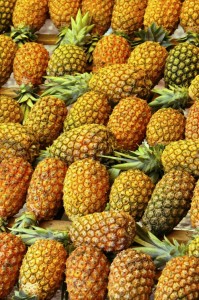Organic Farming in Africa
Organic Farming in Africa is farming with a strong emphasis on maintaining soil fertility, rotating crops and using natural methods to control pests. It is focused on maintaining the entire ecological system. Organically raised livestock for example, are fed completely on greens and hay.
Organic farming does not include for example, injecting animals with hormones, antibiotics on animals, synthetic pesticides or fertilizers with crops, and synthetic hormones to cause animals to grow faster.
Organic farming is not well developed in most countries in Africa. Some farmers engage in certified organic production so that they can export farm produce to western countries. In some African countries however, there is a growing local demand for organic farm produce. These countries include Kenya, South Africa, Egypt, Uganda and Tanzania.
Organic techniques are also used to improve on food production, to help farmers escape poverty, to improve the fertility of the soil, to reduce desertification, to promote growing of indigenous crops, to maintain biodiversity and to fight global warming. Here are three general incentives for practicing organic farming:
- Soil Health for Organic Farming in Africa
Organic farming demands a strong emphasis on maintaining and improving soil quality. The most important aspect of organic farming is maintaining and improving the quality of soil. This means soil that is fertile and biologically active. By practicing crop rotation which includes legumes, farmers can ensure that the soil has nitrogen. It can also ensure that the soil is conducive for soil-enriching microorganisms to thrive. Organic farmers can add
manure, composted manure or natural lime to enrich the soil. The manure has to be added more than four months before harvesting so that it has no negative impact on the products.
In Nigeria which is the most highly populated African country, organic farming is gaining popularity. One interesting initiative to come out of Nigeria was the development of an organic fertilizer made from waste from urban centers.
In Mozambique, one farmer opted to leave maize stalks on his farm instead of clearing them at the end of the season. The maize stalks rot in the farm to become manure. This method has seen him succeed in producing higher yields. It has been widely reported as a uniquely African method of organic farming. Some local farming methods that are no longer feasible have to be abandoned, for example preparing land for planting by burning it.
- Pest Control for Organic Farming in Africa
Organic farmers tend to avoid chemical pesticides. They instead try to work with natural means such as using the natural enemies of the pest. For example, preparing natural insect pathogens can help to control insect pests. Botanical insecticides are a great example of a last, resort intervention. Farmers also practice prevention by ensuring that only plants that are free of disease are used as seedlings or seeds. They rely on maintaining the natural equilibrium of things. In horticulture, straw is used for mulching.
- Profitability for Organic Farming in Africa
IN Western countries, organic farm products fetch a premium price. This helps to make sure that organic farming is more profitable. Most African countries with a few exceptions e.g. South Africa have not put in place certification systems which would help consumers to tell the difference. It is therefore difficult to tell how well such a system would work. In most countries however, a lot of farming activities are de facto organic, and some do fetch a premium price. Free range chicken and eggs are one example. Most consumers consider them tastier and are happy to pay a little more for them.


Awsome!!!